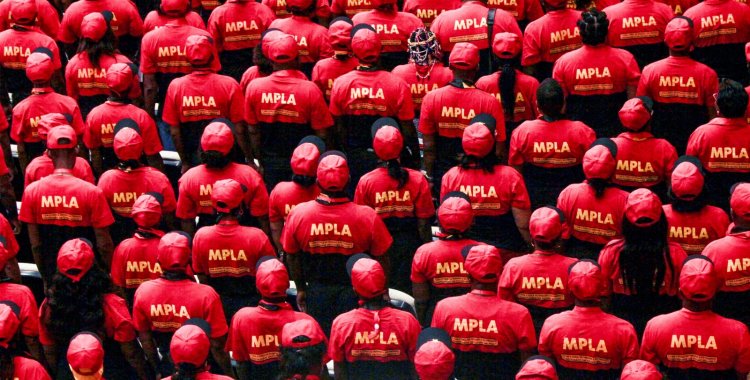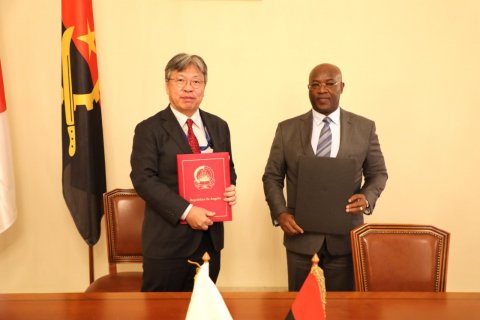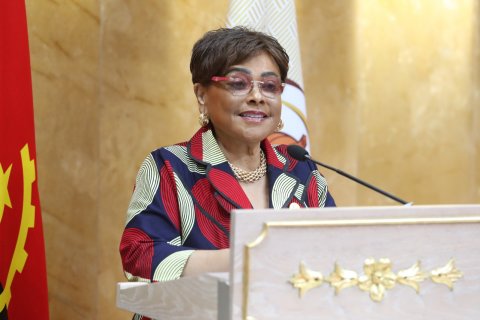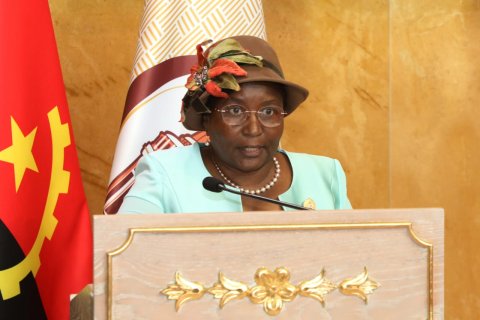"He was aware that the MPLA [Movimento Popular de Libertação de Angola] had inferiority complexes in relation to him. They not only saw him as a strong opponent, due to his qualities, his attributes, but they also have a complex of inferiority in relation to him, because, despite everything, they see in him, although without ever publicly acknowledging this, on the contrary, they see in him qualities that they do not have", he argues.
In "Savimbi – Um homem no seu martírio", which Xavier de Figueiredo refuses to present as a biography, the author seeks to demonstrate that Jonas Savimbi, founder and historical leader of the National Union for the Total Independence of Angola (UNITA), "was the target of a long and destructive campaign of propaganda, disinformation and covert security actions aimed at discrediting and isolating him".
"I have seen some references that present the book as a biography and it is not exactly that. I mean, in the classic sense of that genre. This is not a biography, it is a book about what his life was like as a politician, as political leader. However, the circumstances in which he exercised this political leadership also forced him to be a military leader", he adds.
For Xavier de Figueiredo, the MPLA, which has governed Angola since independence in 1975, carried out a "very persistent campaign, which varies in scope depending on the circumstances", but which always aimed to remove Savimbi.
The UNITA leader, who was born in 1934, in Munhango, Bié province, died in combat on February 22, 2002, in Lucusse, Moxico province.
"The book focuses on this enormous pressure exerted on him in this way, presenting him almost as a monster, as a perverse guy, as a guy who represented an enormous danger to Angola. But I think that's a sophistry. I think, in fact, that what really drives the MPLA is above all its awareness that it is a serious opponent", he argues.
"Due to his political and human qualities, it seems that they are widely recognized. One person who had great appreciation for him was Mandela. The book has a lot of information about this", he adds.
Xavier de Figueiredo also argues that the affinity established between Savimbi and the Ovimbundu, the most numerous tribe in Angola, reinforces the weight and importance of the UNITA leader.
"He is a strong opponent in two ways, because a natural affinity is established between him and the largest tribe in Angola, the Ovimbundu, and this identification gives him an important electoral base. Political and electoral important. Because that tribe, in addition to being the most numerous, also has characteristics such as a strong group spirit. A very great spirit of loyalty. And then Savimbi is a guy who really shows great military genius", he says.
Asked about what Angola would be like if Savimbi had not been killed in combat, Xavier de Figueiredo recognizes that it is not easy to make conjectures: "We never have answers, but I think that Angola would have been a very different thing if, instead of the MPLA, it had been him coming to power at the moment of independence".
"I think he would always end up being killed. In fact, this subtitle that I gave to the book 'A man in his martyrdom', results from the convincing references [in the book] about the MPLA's plans to kill him", he says.
Xavier de Figueiredo points out that, despite the campaign that the MPLA organized against Savimbi, the UNITA leader never reacted in the same way.
"He never goes against propaganda, because in his mind time will prove him right," he says.
With Savimbi's death, UNITA "is left in a situation of orphanhood" and, for Xavier de Figueiredo, the "great merit" of the next leader, Isaías Samakuva, was that of having "managed to hold UNITA back".
"Samakuva guarantees, despite everything, the survival of UNITA in circumstances that were very difficult indeed. Now UNITA explodes with Adalberto [da Costa Júnior]", he considers, referring to the current leader of the Galo Negro party.
"I think he is really, in terms of political acceptance and popularity, at his peak", he reinforces and adds: "This Adalberto is a very combative guy. He has a very combative spirit and he also seems to me to be a very reckless guy. There is no fear, but there is also a lot of demerit to the MPLA itself, which I think is worn out".
Xavier de Figueiredo was born in 1947, in Huambo, and began his life as a journalist in 1971, working for the daily A Província de Angola, in Luanda.
In Portugal, where he settled in 1975, he began working at Jornal Novo and then at the former ANOP, an agency serving which he was the first permanent correspondent for the Portuguese press in a Portuguese-speaking African country – Guinea-Bissau (1978-1981 ), followed by Mozambique (1982-1983). He founded and directed the first African-themed publication launched in Portugal, the fortnightly África Jornal, in 1984.







